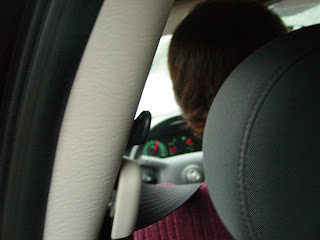Cure for fear?
The team found that mice with increased levels of Cdk5 activity had more trouble letting go of the memory of the foot shock and continued to freeze in fear. The reverse was also true: in mice whose Cdk5 activity was inhibited, the bad memory of the shocks disappeared when the mice learned that they no longer needed to fear the environment where the foot shocks had once occurred." Now here's an interesting article. According to the press release, scientists from MIT's Picower Institute for Learning and Memory have discovered the molecular mechanism behind fear!
Now here's an interesting article. According to the press release, scientists from MIT's Picower Institute for Learning and Memory have discovered the molecular mechanism behind fear!
They found that inhibiting the enzyme, Cdk5, within the hippocampus of mice, eliminated a fear that they learned within a particular context:"In the current research, genetically engineered mice received mild foot shocks in a certain environment and were re-exposed to the same environment without the foot shock.
This research was recently published in Nature Neuroscience. Pretty cool! Such exciting findings could possibly open up the door to new effective treatments for various emotional disorders, extreme phobias and even Post Traumatic Stress Disorder. Very cool!



